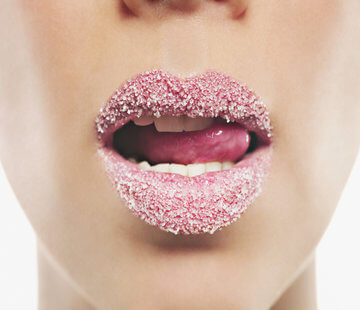
Debunked


Mary Poppins had us believe that it took a spoonful of the sugar to make the medicine go down but evidence today is contrary. It is precisely this substance, which has resulted in many across the globe having to seek medicine. The American Heart Association states that the average person today consumes 22 teaspoons of sugar daily, which is more than 3 times the required recommended intake!
Each teaspoon of sugar clocks 16 calories and 4g of sugar. And we wonder why our waistlines are expanding continually? The thing with sugar is that sugar is just empty calories with not much nutrient value at all and when ingested, it makes its way straight into our body’s fat stores.
When I refer to ‘sugar’ it is that which lurks in processed food i.e. biscuits, bottled drinks, breads, boxed cereals etc. This is added sugar and there is no physiological need for this. Naturally occurring sugar is found in whole foods, such as fruit, vegetables and dairy products. These foods are healthier because along with delivering essential macro and micronutrients, they contain fibre, which ensures a slow and steady release of sugar into our blood stream. This not only keeps us feeling fuller for longer but it also prevents a dramatic blood sugar spike which the body quickly converts into fat.
It is important however to be note that even all unprocessed foods should be consumed with awareness of their natural sugar content. Whether it’s honey or coconut sugar or molasses or refined caster sugar – it is ALL SUGAR! Food manufactures have 56 different names for describing this 5-letter word. The WHO recommends that in each meal we should be eating no more than 5g of sugar and in a day we should limit our sugar intake to <25g/day.
Sugar addiction in the developed world is an epidemic. When it comes to weaning yourself off of sugar, do NOT go cold turkey. Gradually cut it out because a sudden cut-off will result in withdrawal symptoms not unlike that seen in cocaine addiction. To satisfy your sweet cravings use spices like cinnamon, vanilla, chicory, nutmeg and cardamom as well as fruits like berries, oranges and apples.
When it comes to processed foods, two words – avoid completely! If a packaged food contains sugar in its first 3 ingredients, avoid! If a packaged food has more than 3 types of sugar in it, avoid! And if you can’t cut processed foods out totally then flip the label and read the sugar content before you put it in your mouth. You’ll find, more often than not, that the truth is bittersweet …

Juggling many roles from physician to writer to pilates instructor to Marketing-PR executive, Dr. Daamini is constantly pushed and inspired to get creative on how to encompass a Retreat into her daily life.
View Profile